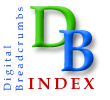
| Search |
 |
||||||||
| Words | Images | Audio | Scholar | ||||||||
|
||||||||
|
The goal of our study is to apply the kind of close, situated research practices that are becoming common to researchers in writing studies to help us examine some of the common attitudes and perspectives that shape research in fields where the focus is often on specific kinds of search practices, or specific kinds of search environments. We believe a focus that begins at the level of individual practice, and extends outward to a variety of search environments, will allow us to perceive gaps in the current research located at the intersection between the individual and the digital research space. Our study engages in qualitative analysis of individual users' search practices--as well as reflective discussions in which we and our participants consider how our practices do and do not match up with the "ideal" scholarly practices embedded in the history and purposes of institutions of higher learning. We are seeking to bring together the fields of library and information science and writing studies to offer fuller insight into online research practices and their relationship to writing. Research on search practices in online spaces should focus not only on finding the best sources, but also on understanding the connections between (re)search and writing practices. Additionally, instead of attempting to label people's practices and discuss those practices in terms of theories of computer interaction and information retrieval, we seek to focus on the stories people tell about their search experiences and the metaphors they use to structure and reflect on their search activities. This process of looking at particular activities with a descriptive stance that avoids setting hypotheses is aligned with the Crabtree et al. (2000) discussion of ethnomethodological approaches, though our sense of participatory activism does not quite fit into this framework. Our attention to the details of local practices, and our reliance on the narratives of participants to develop key terms and determine direction, helps us to move toward a further goal of this research, which is to maintain a more activist stance towards both the participants and the project itself. One of our primary goals is to provide study participants with opportunities to reflect on their own specific practices as researchers and to assist us in developing recommendations about pedagogical and research approaches to search engines and technologies that might benefit researchers in academic settings. The differences between our focus and goals and those of researchers in other fields might be compared to the differences between the goals and practices of end users and information experts, respectively. As Eva Thury (1991) noted, "End users [. . .] use much less efficient strategies [than professionals], because their aims are different. [. . . ] They are more interested in browsing the field as a whole than in any particular search" (p. 5). The disciplines that produce these "search professionals" may see the processes of the "end user" as less efficient, but our stance is that these open-ended and sometimes messy processes can add important insights to scholarship in this area. As the narratives of our participants show, seemingly "inefficient," multiple strategies can be the hallmark of creative, and often highly productive, research processes. These "inefficient" processes can indeed be inventional. Not finding sought sources in what are traditionally thought to be efficient ways, in other words, can help researchers generate ideas and think about the relationships between sources. Further, as Scott Brandt (1999) explained in his article "Do You Have an Ear for Searching?," understanding the different kinds of mental models that searchers create can be key to developing instructional tools and facilitating the learning processes of researchers. |